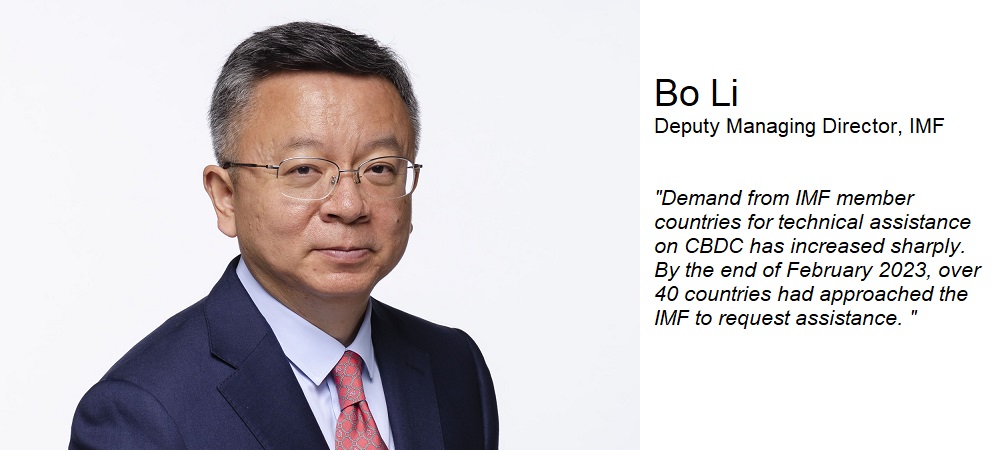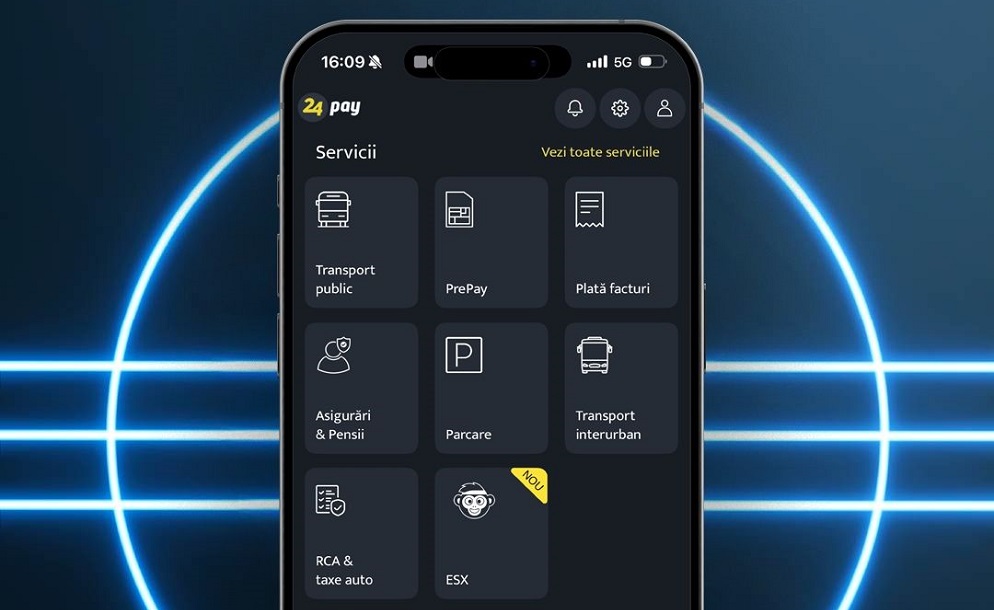The International Monetary Fund published a report on Central Bank Digital Currency capacity development. „Demand from IMF member countries for technical assistance on CBDC has increased sharply” – says IMF.

The BIS’s most recent CBDC survey, conducted in 2021, found that nine out of 10 central banks are now exploring CBDCs, with half developing or running concrete experiments. The survey also showed that more than two-thirds of central banks are likely to issue a retail CBDC in the short or medium term (within the next six years). The CBDC subject will be discussed at Banking 4.0 international blockchain conference.
Amid this rising global interest in CBDC, „demand from IMF member countries for technical assistance on CBDC has increased sharply” – says Deputy Managing Director Bo Li’s in its opening remarks for Panel on the IMF Approach to Central Bank Digital Currency Capacity Development.
He continues:
„By the end of February 2023, over 40 countries had approached the IMF to request assistance. Countries’ questions range from objectives and design choices to pilots and analysis of macro-financial implications. In the past two years, the IMF has started to engage with almost 30 countries. We believe CBDC capacity development is essential to avoid a digital divide.”
„CBDC is likely to have profound implications for monetary policy and financial stability. CBDC could strengthen the usability, resilience, and efficiency of payment systems and increase financial inclusion. However, if poorly designed, CBDC could also lead to financial stability risks, data privacy and legal challenges, financial integrity and cyber risks, and central bank operational risks.
„In addition, widespread use of CBDCs could change the configuration of the international monetary system. CBDC could reduce the number of intermediaries in cross-border payments, foster competition and enhance transparency. On the other hand, easy access to foreign CBDCs could lead to risks of currency substitution and capital flow volatility.”
IMF staff recently published an IMF policy paper on the IMF Approach to CBDC Capacity Development. This policy paper outlines a multi-year strategy to help IMF member countries meet challenges regarding CBDC and introduce the plan for a CBDC Handbook.
The Handbook will be a compendium of knowledge and experience on CBDC. It will be the basis for capacity development and hopefully help countries make as well-informed decisions as possible when taking the major step to design and issue their own CBDC.
This report serves as a valuable reference for policymakers in central banks, ministries of finance, and IMF staff and experts participating in capacity development missions.
Key takeaways from the IMF’s CBDC report:
• The IMF acknowledges the potential impact of CBDCs on monetary policy, financial stability, and the international monetary system (IMS).
• Consequently, it has developed a multi-year strategy addressing common questions and concerns related to CBDCs.
• The IMF’s CBDC capacity development strategy is built on three pillars: knowledge sharing, technical assistance, and policy advice. This approach aims to help countries understand CBDCs, establish a foundation for capacity development delivery, and serve as a central point for analytical work.
• The IMF emphasizes that the decision to issue a CBDC remains the responsibility of the individual authorities. It does not endorse CBDC issuance by any country.
• The report identifies potential risks linked to CBDC adoption, such as financial stability, operational, legal, and privacy risks. It advises countries to thoroughly assess these risks before deciding to issue a CBDC.
Read the full report: IMF approach to CBDC capacity development
The report prepared by IMF staff and presented to the Executive Board in an informal session on April 7, 2023. Such informal sessions are used to brief Executive Directors on policy issues. No decisions are taken at these informal sessions. The views expressed in this paper are those of the IMF staff and do not necessarily represent the views of the IMF’s Executive Board.
Dariusz Mazurkiewicz – CEO at BLIK Polish Payment Standard
Banking 4.0 – „how was the experience for you”
„To be honest I think that Sinaia, your conference, is much better then Davos.”
Many more interesting quotes in the video below:










